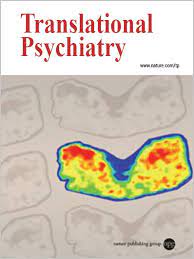Where are NIMH & the CDc
In Getting Translational Research & Medicine on Neuro-inflammation to clinicians
|
Val's Take
NAMI Montana: "It's Time To Improve the Mental Illness Diagnostic Process" (2013)
Menninger Clinic Mindscape: Sir Peter Fonagy, PhD, on Improving the Delivery of Mental Healthcare in the U.K. (2013)
Roche
The role of interleukin-6 in autoimmune diseases (2016) Neuroscience News March 4, 2021 Summary: Astrocytes derived from pluripotent stem cells of bipolar patients provide suboptimal support for neural activity. The malfunction can be traced to the inflammation-promoting molecule, interleukin-6. Source: Cell Press Brain cells called astrocytes derived from the induced pluripotent stem cells of patients with bipolar disorder offer suboptimal support for neuronal activity. In a paper appearing March 4th in the journal Stem Cell Reports, researchers show that this malfunction can be traced to an inflammation-promoting molecule called interleukin-6 (IL-6), which is secreted by astrocytes. The results highlight the potential role of astrocyte-mediated inflammatory signaling in the psychiatric disease, although further investigation is needed |
Inflammation-related biomarkers in major psychiatric disorders and specificity in 43 meta-analyses
(2019) Chinese Researchers -- some also affiliated with SUNY (State University of New York) -- find the following --- Abstract Inflammation is a natural defence response of the immune system against environmental insult, stress and injury, but hyper- and hypo-inflammatory responses can trigger diseases. Accumulating evidence suggests that inflammation is involved in multiple psychiatric disorders. Using inflammation-related factors as biomarkers of psychiatric disorders requires the proof of reproducibility and specificity of the changes in different disorders, which remains to be established. We performed a cross-disorder study by systematically evaluating the meta-analysis results of inflammation-related factors in eight major psychiatric disorders, including schizophrenia (SCZ), bipolar disorder (BD), autism spectrum disorder (ASD), major depression disorder (MDD), post-trauma stress disorder (PTSD), sleeping disorder (SD), obsessive–compulsive disorder (OCD) and suicide. A total of 43 meta-analyses involving 704 publications on 44 inflammation-related factors were included in the study. We calculated the effect size and statistical power for every inflammation-related factor in each disorder. Our analyses showed that well-powered case–control studies provided more consistent results than underpowered studies when one factor was meta-analysed by different researchers. After removing underpowered studies, 30 of the 44 inflammation-related factors showed significant alterations in at least one disorder based on well-powered meta-analyses. Eleven of them changed in patients of more than two disorders when compared with the controls. A few inflammation-related factors showed unique changes in specific disorders (e.g., IL-4 increased in BD, decreased in suicide, but had no change in MDD, ASD, PTSD and SCZ). MDD had the largest number of changes while SD has the least. Clustering analysis showed that closely related disorders share similar patterns of inflammatory changes, as genome-wide genetic studies have found. According to the effect size obtained from the meta-analyses, 13 inflammation-related factors would need <50 cases and 50 controls to achieve 80% power to show significant differences (p < 0.0016) between patients and controls. Changes in different states of MDD, SCZ or BD were also observed in various comparisons. Studies comparing first-episode SCZ to controls may have more reproducible findings than those comparing pre- and post-treatment results. Longitudinal, system-wide studies of inflammation regulation that can differentiate trait- and state-specific changes will be needed to establish valuable biomarkers. |
